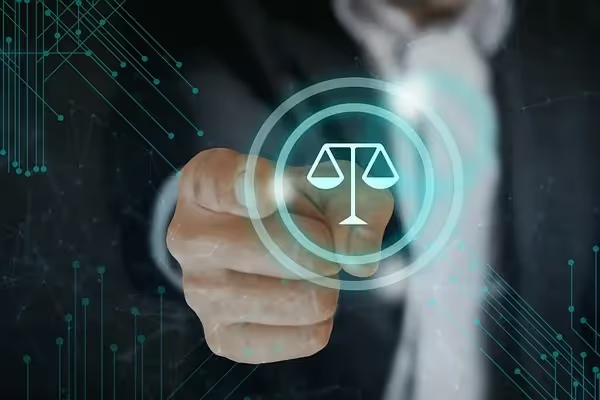Introduction
In today’s hyper-connected world, social media is an integral part of daily life blurring the boundaries between personal expression and professional responsibility. With countless stories of employees being fired for social media posts, many workers wonder: “Can I get fired for posting on social media?” or “Can employers see my YouTube comments?” The reality is that what you share online, even outside work hours, can have real consequences for your career.
This comprehensive guide explores when and why employees get fired for social media posts, real-life examples of social media misconduct, the role of workplace policies, and how schools and companies are adapting their social media guidelines. We’ll also answer the most pressing questions about privacy, digital footprints, and employer rights in the age of online transparency.
Why Does Social Media Misconduct Matter?
Social media platforms allow employees to voice opinions, share experiences, and connect with others. However, these same platforms can expose individuals and their employers to reputational, legal, and ethical risks. Employers are increasingly vigilant about monitoring online behavior that could harm their brand, violate workplace policies, or create a hostile environment.
Social media misconduct matters because:
- Reputation: Employees are seen as representatives of their organizations.
- Workplace Culture: Inappropriate posts can create tension, harassment, or discrimination.
- Compliance: Certain industries have strict confidentiality and conduct rules.
- Public Backlash: Viral posts can lead to negative publicity and financial loss.
Can I Get Fired for Posting on Social Media?
Yes, employees can be fired for social media posts if those posts violate company policy, threaten the organization’s reputation, or create a hostile work environment. While social media can be a tool for personal branding and professional networking, careless or offensive content can quickly lead to warnings, disciplinary action, or termination.
Legal Considerations
Employers generally have the right to terminate employees for any lawful reason, including social media activity. However, there are exceptions:
- Discrimination: Firing based on race, gender, religion, or other protected characteristics is illegal.
- Retaliation: Employees cannot be fired for whistleblowing or reporting workplace violations.
- Protected Speech: Some speech, such as discussing workplace conditions, may be protected under labor laws.
Social Media Posts That Got Someone Fired: Real-Life Examples
1. Racist or Offensive Content
A high school teacher in Georgia was fired after a video surfaced of him writing a racial slur on the classroom whiteboard. The incident sparked outrage and led to immediate termination.
2. Derogatory Comments About Supervisors
An employee was dismissed after posting negative remarks about her supervisor on Facebook. The case drew attention from the National Labor Relations Board, highlighting the complexities of employee rights and employer policies.
3. HIPAA Violations
A nurse in Texas lost her job after posting about a patient’s medical condition on Facebook, violating patient privacy laws—even though the patient’s name wasn’t mentioned.
4. Inappropriate Conduct on Video
A teacher was fired after posting TikTok videos filmed in the classroom, joking about lying to students and making inappropriate remarks. The school cited violation of its social media policy.
5. Adult Content and OnlyFans
A veteran English teacher resigned after her OnlyFans account was discovered by her school district, which deemed her content a violation of professional conduct and technology policies.
6. Customer Service Failures
Frontier Airlines fired two gate agents after a TikTok video showed them mocking a passenger. The company emphasized its commitment to respectful service.
7. Racist Comments on Social Media
An Ohio woman was fired after leaving a racist message on a restaurant bill, which went viral online. Her employer quickly distanced itself from her actions.
8. Mocking Job Applicants
An HR manager was terminated for publicly mocking job applicants on social media, damaging the company’s reputation and trust.
For more examples and insights, check out social media screening.
Social Media Policy in Schools and Workplaces
A clear, well-communicated social media policy is essential for both employers and employees. These policies outline acceptable online behavior, confidentiality rules, and consequences for violations.
Key Elements of a Social Media Policy
- Professionalism: Employees must avoid posts that could harm the organization’s image.
- Confidentiality: Sharing sensitive company or client information is strictly prohibited.
- Respect: Harassment, discrimination, or hate speech is not tolerated.
- Personal vs. Professional: Employees should distinguish between personal views and official statements.
Schools, in particular, have adopted strict social media policies for staff to protect students, uphold educational standards, and maintain public trust. For educators, even off-duty conduct can be scrutinized if it impacts their role as a trusted authority figure.
Can Employers See My YouTube Comments or Social Media Activity?
Employers can see any public comments or posts you make, including YouTube comments, Facebook posts, tweets, and Instagram content. If your accounts are public, your digital footprint is accessible to anyone including potential or current employers.
Private accounts offer more protection, but nothing online is ever truly private. Screenshots, mutual connections, and data leaks can expose information you thought was hidden.
Automated social media screening and social media listening tools are increasingly used by HR departments to flag risky content and monitor brand mentions in real time.
Teachers and Social Media: High-Profile Cases
Educators are held to especially high standards, and there have been several widely publicized cases of teachers being fired for social media posts or online content:
- Teacher fired for OnlyFans: A veteran English teacher resigned after her OnlyFans account was discovered, violating school conduct and technology policies.
- Teacher fired for TikTok posts: A Kansas City teacher was terminated after posting comedic TikToks filmed in his classroom, which school officials deemed inappropriate.
- Teacher fired for tweets: A high school math teacher lost her job after tweeting about drug use and posting suggestive photos.
These cases highlight the importance of understanding and adhering to social media policy schools.
Why Does It Say "Terminated" If I Quit?
Sometimes, employees who resign may still see "terminated" on their employment records. This can happen if the resignation occurred during an investigation or after policy violations were discovered. It’s important to clarify your employment status with HR and ensure your records accurately reflect the circumstances of your departure.
How Can Employees Protect Themselves Online?
- Familiarize yourself with your employer’s social media policy.
- Set your accounts to private and be selective about friend requests or followers.
- Avoid posting about work, colleagues, or clients.
- Think before you post—assume anything online could become public.
- Use influencer vetting tools if you have a public profile or side business.
The Role of Automated Social Media Screening
Many organizations now use automated tools to monitor employee social media activity, both during hiring and employment. These tools scan for keywords, sentiment, and risk factors, flagging content that could violate company policy or damage reputation.
For businesses, automated screening offers:
- Consistency: Reduces human bias in monitoring.
- Speed: Quickly flags potential issues.
- Compliance: Helps meet legal and ethical standards.
For employees, this means greater scrutiny—but also a chance to proactively manage your digital footprint.
Frequently Asked Questions:
1. Can I get fired for posting on social media outside of work hours?
Yes, if your posts violate company policy, harm the company’s reputation, or create a hostile work environment, you can be fired—even if the posts were made outside work hours.
2. Can employers see my YouTube comments or private social media activity?
Employers can see any public comments or posts. Private activity is generally protected, but leaks, screenshots, or mutual connections can still expose your content.
3. Are there legal protections for employees fired over social media posts?
Some posts may be protected by labor laws (such as discussing workplace conditions), and employees cannot be fired for discriminatory or retaliatory reasons. However, most social media activity is not protected if it violates company policy.
4. What kind of posts are most likely to get someone fired?
Posts that are racist, sexist, discriminatory, harassing, violate confidentiality, or damage the company’s reputation are most likely to lead to termination.
5. Can teachers be fired for social media posts ?
Yes, teachers and other professionals can be disciplined or fired if their online activity violates conduct or technology policies, even if the content is posted outside work hours.
6. What should I do if I’m asked to delete a post by my employer?
Review your company’s policy, seek clarification, and consult with HR or legal counsel if needed. Non-compliance can sometimes lead to disciplinary action.
7. Why does my employment record say "terminated" if I resigned?
If you resigned during an investigation or after violating policy, your record may show "terminated." Clarify your status with HR to ensure accuracy.
8. How can I monitor and protect my digital reputation?
Regularly audit your online presence, use privacy settings, avoid posting controversial content, and consider social media screening or social media listening tools for proactive monitoring.
Conclusion
In the digital age, employees must understand that their social media activity can have real-world consequences including termination. Whether you’re a teacher, corporate professional, or public figure, it’s crucial to know your employer’s policies, exercise discretion online, and proactively manage your digital footprint. As automated social media screening becomes more common, the line between personal expression and professional responsibility will only become more important to navigate.

.avif)









.avif)